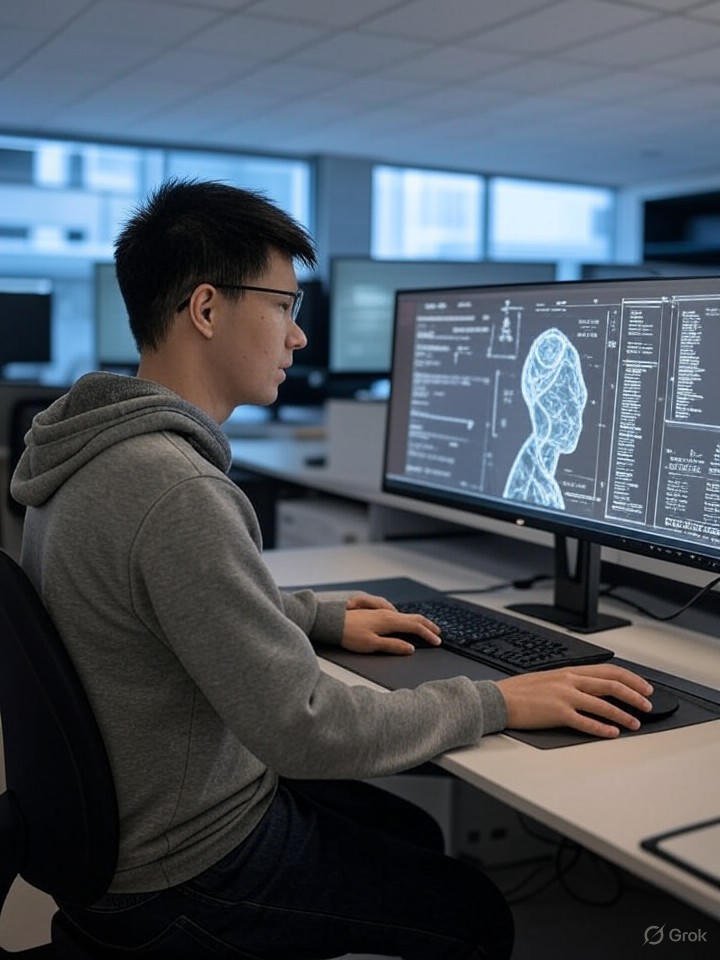Lenexa, Kan., Aug. 04, 2025 (GLOBE NEWSWIRE) — The era of artificial intelligence (AI) as a mere experimental tool in higher education is over. A new in-depth analysis, Marketing and Enrollment Management AI Readiness Report 2025, released by UPCEA, the online and professional education association and EducationDynamics, a transformative strategic partner in higher education, examines AI’s rapidly expanding scope and impact within institutional practices in the realm of prospective student marketing and enrollment management. This is the second year in which the report has been released.
The 2025 study reveals that, while institutional optimism and receptivity to emerging technologies are growing, a significant gap persists between this optimism and actual operational readiness. Many institutional representatives responded that they perceive their institution is falling behind their peers, with only 21% reporting they believe they are ahead of the industry in AI adoption. The report highlights that the question is no longer whether to use AI, but how fast institutions must move to keep up in a rapidly evolving landscape.
Key findings from the 2025 report include:
- Perceived Lag in AI Leadership: Despite growing individual adoption, a significant 56% of institutions still do not consider themselves leaders in implementing AI for marketing and enrollment. A concerning 36% felt their institution was behind their peers, while only 21% believed they were ahead.
- Tangible Performance Gains through AI: For those integrating AI, the benefits are clear. 69% of respondents reported improved efficiency in marketing and enrollment workflows and nearly half (48%) saw a positive impact on their enrollment funnel. Areas like customized ad messaging and lead generation are reported to be yielding strong ROI.
- AI Readiness Impacts Staff Retention: The institution’s approach to AI is now a significant factor in talent retention. In 2025, a striking 34% of respondents stated their institution’s view on AI would impact their likelihood to stay, a dramatic increase from just 1% in 2024. This highlights the growing importance of AI fluency in attracting and retaining top marketing and enrollment management talent.
The full report provides deeper insights into these trends, including the rapid acceleration of individual staff AI adoption, persistent barriers like budget and data privacy and evolving student expectations for AI-powered interactions.
“AI has transitioned from an experimental tool to a core component of higher education marketing and enrollment operations,” stated Sarah Russell, Vice President of Marketing at EducationDynamics. “Institutions that are embracing AI are already reporting measurable gains in effectiveness and efficiency. The report clearly shows that delaying implementation risks falling permanently behind, not just peers, but also the evolving expectations of Modern Learners.”
“While staff adoption and institutional openness to AI are on the rise, the challenge now is turning that momentum into practical, campus-wide strategies,” added Emily West, Senior Market Research Analyst at UPCEA. “Leaders need to focus on implementing AI tools that have a track record of success, prioritize building their teams’ skills, and set up clear guidelines to support thoughtful, ethical use across departments. Creating clear career growth opportunities tied to AI skills can also strengthen staff engagement and retention. “The report provides a strategic roadmap for higher education leaders to navigate the evolving AI landscape, emphasizing intentionality, cross-departmental collaboration and a sense of urgency to prepare for the future of student engagement and institutional growth.
The full Marketing and Enrollment Management AI Readiness Report 2025 is now available for download.
For more information, please visit educationdynamics.com/insights or contact Senior Director of Marketing and Corporate Communication Eric McGee at emcgee@educationdynamics.com.
About UPCEA
UPCEA is the online and professional education association. Our members continuously reinvent higher education, positively impacting millions of lives. We proudly lead and support them through cutting edge research, professional development, networking and mentorship, conferences and seminars, and stakeholder advocacy. Our collaborative, entrepreneurial community brings together decision makers and influencers in education, industry, research, and policy interested in improving educational access and outcomes.
About EducationDynamics
EducationDynamics is the transformative strategic partner in higher education, focused on maximizing human potential by empowering institutions and leaders who are ready to challenge the status quo. With 35 years of experience, EducationDynamics has continuously evolved to stay ahead of the everchanging landscape, helping partner institutions exceed what was previously thought possible. The company offers a distinct voice for leaders seeking to move beyond outdated practices, embracing a data-driven, student-centric approach that leverages research, strategy, action, and measurement to build strong brand reputation and optimize marketing performance for sustainable revenue growth. EducationDynamics activates, executes, and optimizes in real time, translating insights into precise action.
























